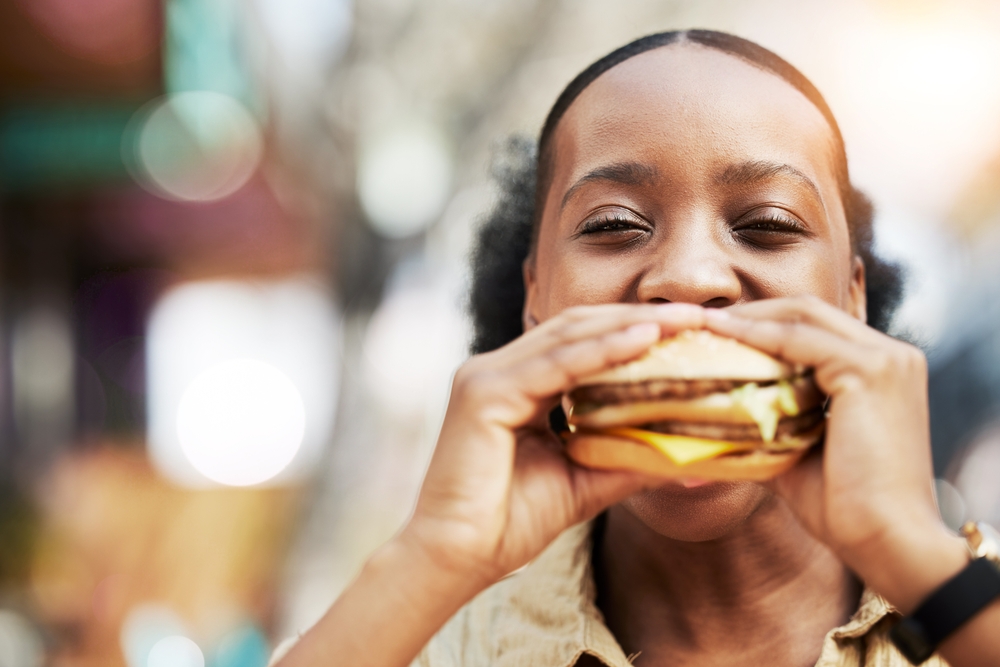Stress can hijack your body in unexpected ways. One of the most common, and often misunderstood, responses to stress is food cravings. Whether it’s the sudden desire for chocolate late at night or the urge to devour salty chips during a tough workday, the link between stress and cravings is more than just emotional — it’s biological, psychological and behavioral.
Understanding why this happens isn’t just helpful; it’s necessary. It empowers you to make better decisions, build healthier habits and regain control during challenging moments.
How stress rewires the brain
When stress hits, your brain immediately goes into survival mode. The hypothalamus triggers the release of cortisol, the primary stress hormone. Cortisol doesn’t just make you alert — it influences your hunger patterns.
In times of chronic stress, cortisol levels remain high for longer periods. This prolonged exposure to the hormone can significantly increase your appetite, especially for foods high in sugar, fat and salt.
These comfort foods activate the brain’s reward center, particularly the release of dopamine. Dopamine is the “feel-good” chemical, and it plays a crucial role in reinforcing behaviors — like stress eating — that offer momentary relief. Your brain learns quickly: “Eat this, feel better.”
The emotional food connection
For many, the connection between stress and food goes back to early experiences. Childhood memories of being comforted with sweets or rewarded with snacks build long-lasting emotional associations.
Over time, these habits become unconscious. A stressful exam, heartbreak or deadline might send you straight to the freezer for ice cream, not because you’re hungry, but because your mind associates those foods with relief or reward.
These moments aren’t about indulgence or weakness. They’re a reflection of how the mind tries to cope with discomfort — by reaching for what’s familiar and comforting.
Why sugar and fat top the craving list
It’s no coincidence that the foods people reach for under pressure are often loaded with sugar or saturated fat. These types of foods have fast-acting effects on the brain’s chemistry.
Sugar triggers a rapid spike in serotonin, a neurotransmitter linked to mood stabilization. This can produce a calming effect, especially when you’re anxious or upset. Similarly, fatty foods can generate a sense of fullness and warmth, creating a temporary emotional shield.
Unfortunately, this kind of relief is short-lived. The initial spike is followed by a crash, often leaving you feeling worse — physically and emotionally. This rollercoaster effect can create a harmful cycle of cravings, guilt and stress, repeating over and over.
Sleep deprivation intensifies cravings
Lack of sleep and high stress levels go hand in hand. When your body is deprived of rest, it attempts to compensate by demanding quick energy sources. This usually means high-carbohydrate or sugary foods.
Inadequate sleep also raises cortisol levels, intensifying both physical hunger and emotional cravings. Ghrelin, the hormone responsible for stimulating appetite, rises with sleep deprivation, while leptin, the hormone that signals fullness, decreases.
Together, these changes make it nearly impossible to distinguish between real hunger and emotional hunger, further complicating your food choices.
Cultural influences on stress eating
Society reinforces the idea that certain foods offer comfort. Commercials show people diving into pizza boxes after a breakup, or laughing over fast food after a hard day. These images subtly influence how people perceive food’s role in stress management.
This conditioning doesn’t just shape your preferences — it changes your default behaviors during high-pressure moments. Over time, food becomes the go-to solution for emotional discomfort, loneliness and even boredom.
It’s not that food itself is the enemy. But the automatic reliance on it during emotional upheaval can mask deeper issues and delay healthier coping strategies.
Health impacts of stress-induced eating
Consistently turning to food as a coping mechanism can lead to long-term consequences. Weight gain, fatigue and imbalanced blood sugar levels are common outcomes. More seriously, it can raise the risk for chronic conditions like type 2 diabetes, heart disease and high blood pressure.
Digestive health may also be compromised. When stress is high, the body diverts energy away from digestion, slowing down metabolism. Combine that with fast, stress-driven eating, and you’ve got a recipe for gastrointestinal discomfort and bloating.
The guilt that often follows stress eating can lower self-esteem and compound stress — leading to even more unhealthy behavior.
Recognizing emotional versus physical hunger
A key step toward healthier eating during stressful times is learning to tell the difference between emotional hunger and physical hunger. Physical hunger:
- Develops gradually
- Can be satisfied with a variety of foods
- Stops when you’re full
Emotional hunger:
- Comes on suddenly
- Craves specific comfort foods
- Persists despite fullness
Tracking your eating patterns can help you identify triggers. Journaling how you feel before and after eating is one way to bring mindfulness into the picture. If you find that most of your eating happens when you’re not actually hungry, it may be time to evaluate your coping tools.
Strategies to manage stress cravings
Pause and reflect
Before reaching for a snack, take a moment to ask: “Am I actually hungry?” If the answer is no, consider what emotion you’re experiencing.
Substitute the behavior
If you’re craving chocolate after a tense meeting, try going for a walk, listening to calming music or even squeezing a stress ball. Replacing the craving with a non-food activity can shift your mental state.
Balance your meals
Eating consistent, nutrient-dense meals throughout the day helps regulate blood sugar and cortisol levels. When your body is nourished, it’s less likely to experience intense cravings.
Practice mindful eating
Eat slowly, without distractions. Pay attention to flavor, texture and how your body feels. This helps you build a better relationship with food and reduces the chance of eating out of stress.
Build a stress toolbox
Meditation, breathwork, journaling or talking to a therapist can help release built-up tension. Having several outlets gives you options beyond food when emotions run high.
When to seek support
If food cravings are starting to control your life, it might be time to talk to a professional. Emotional eating can be a symptom of deeper issues like anxiety or depression. A therapist or registered dietitian can offer support tailored to your unique situation.
Addressing the root cause of stress, rather than silencing it with snacks, can lead to healing — mentally and physically.
Craving certain foods during stress is not a sign of failure. It’s a signal. Your body and mind are trying to tell you something — they need care, comfort and balance.
With greater self-awareness and some simple strategies, you can shift your relationship with food. Instead of letting stress drive your decisions, you can take the wheel — and nourish yourself in healthier, more sustainable ways.
This story was created using AI technology.













